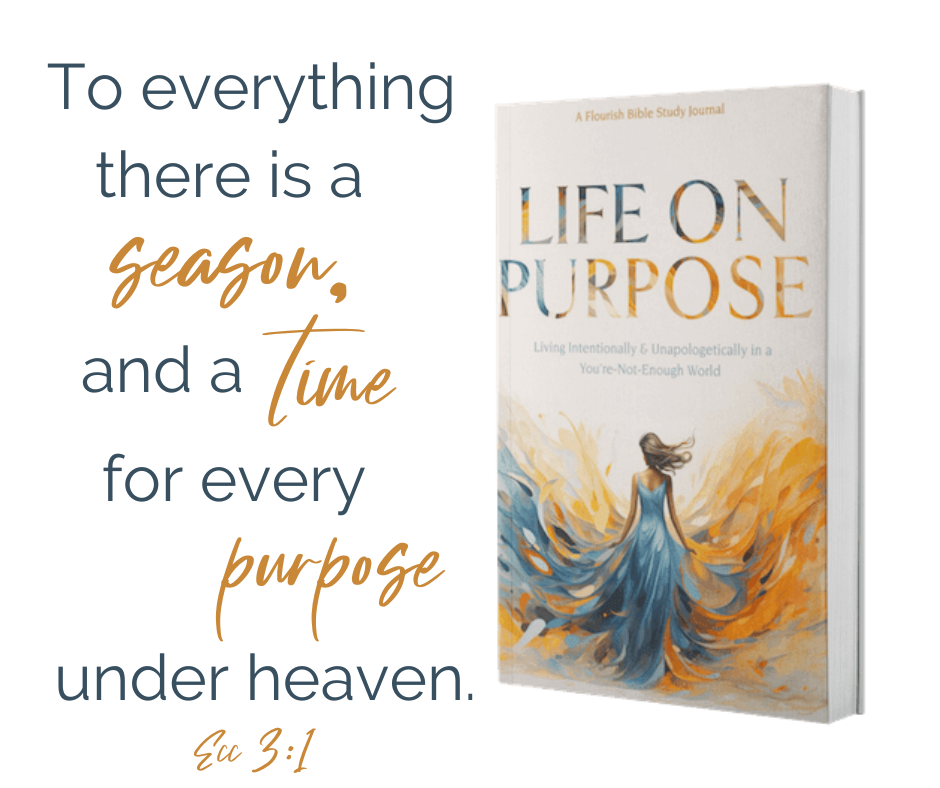We arrive in Judah and enter the story at another dialogue between Naomi and Ruth. This time Naomi asks Ruth to do something rather peculiar. Let’s take a look:
Naomi said to her, “My daughter, I must find a home for you, where you will be well provided for. Now Boaz, with whose women you have worked, is a relative of ours. Tonight, he will be winnowing barley on the threshing floor. Wash, put on perfume, and get dressed in your best clothes. Then go down to the threshing floor, but don’t let him know you are there until he has finished eating and
drinking. When he lies down, note the place where he is lying. Then go and uncover his feet and lie down. He will tell you what to do.” Ruth 3:1-4 (NIV)
When I researched this unusual encounter, I discovered that Ruth’s actions are seen as an act of servitude and in line with traditions during that time. Boaz knows that He is in the family line and able to “redeem” Ruth and Naomi, yet He is not sure if that is what Ruth truly desires. Historians believe that Boaz was considerably older than Ruth, so he needed confirmation before beginning the official proceedings. She is asking for his hand in marriage. And we thought that was a modern-day thing!
An Unlikely Redemption
This story of redemption is improbable since Ruth and Boaz are an unlikely pair, a Jew and a Gentile. The Jews are God’s chosen people and worship only the one true God. Ruth on the other hand is a Gentile, born and raised in Moab, a pagan land that worships false gods and idols. This pairing is unlikely in Jewish culture. We read that when Boaz approaches the first redeemer (Ruth 4), this man is interested in redeeming the land, but he does not want the foreign woman who would have to become his wife. Matthew Henry writes:
The land, he thought, would be an improvement of his inheritance, but not the land with the woman that would mar it. Perhaps he thought it would be a disparagement to him to marry such a poor widow that had come from a strange country, and almost lived upon alms. He fancied it would be a blemish to his family, it would mar his blood, and disgrace his posterity. Her eminent virtues were not sufficient in his eye to counterbalance this. (Matthew Henry Commentary on Ruth)
Ouch! Did you catch that last line? “Her eminent virtues were not sufficient in his eye.” Thankfully, we too have an unconditional redemption available to us, and it is not conditional on our virtues. Our redemption is not based on race, gender or our past history. It is available to all of us. The story of the cross is the ultimate story of redemption, and it is centered on love at its very core.
This is real love—not that we loved God, but that he loved us and sent his Son as a sacrifice to take away our sins. 1 John 4:10 (NLT)
An Unlikely Exchange
After the redemption agreement made by Boaz and the first kinsman redeemer, I noticed an interesting exchange:
Now was the custom in former times in Israel concerning redeeming and exchanging: to confirm a transaction, the one drew off his sandal and gave it to the other, and this was the manner of attesting in Israel. Ruth 4:7 (NIV)
I was fascinated by this quirky and odd custom, then it hit me. We too are “exchanged.” When Jesus died on the cross he gave his very life in exchange for our sins. All our sins. And when we receive Jesus into our hearts, we exchange our old sin nature for our new identity in Christ.
Several years ago, I was invited to speak at a women’s retreat. As I arrived that weekend, I laid my heart’s requests before the Lord, and I thought I knew exactly how He would answer to me. One of the other speakers was a mighty prayer warrior, and I was eager to get a few minutes of her time so that she could pray over me in an area of my life where I felt stuck. The weekend came and went, and when our last morning arrived, I had yet to be able to pray with her. I was devastated and thought I would be leaving without the healing I desired.
That morning each of the participants was asked to write a word on a stone that represented their weekend. For some reason I chose the phrase “new creation.” I quickly scribbled the phrase and glanced over my speaking notes as I was to speak right after the worship set. During worship, the prayer warrior I so desperately wanted to speak with came over and whispered in my ear: “Jenny, the Lord wants me to tell you that you are a new creation and those very areas that you desired to be healed are being made new at this very moment.”
I couldn’t believe it! That is the exact phrase the Lord had spoken to me. I was reminded that the unconditional love of God through the sacrifice of Jesus exchanged my old self with all my brokenness and gave me a new identity, therefore making me a new creation: “Therefore, if anyone is in Christ, the new creation has come: The old has gone, the new is here!” 2 Corinthians 5:17 (NIV)
A Love Story Unfolding
The greatest love story, the story of God’s love for His people continues to play out in the lives of the least likely, the forgotten, and the sinner. Stories like that of Naomi and Ruth remind us that God’s unconditional love passionately pursues us on purpose. And there is always a purpose, as God desires to abundantly bless us beyond our wildest imagination (Ephesians 3:20). Ruth would go on to marry Boaz and give birth to a son that would become the grandfather to King David. Their family was now grafted into the lineage of Jesus. What an honor!
Our lives in the hands of God’s love are redeemed. We are a new creation, no longer defined or limited by our past, our sin, or our failure. Because of the Lord’s unconditional love that paid the final price for our sin, once and for all, Jesus shed His blood as an act of dedicated sacrifice for you and for me.
When we acknowledge God’s love, believe in His love, and surrender our hearts to His love, we receive God’s gift of redemption through Jesus Christ.
This is the greatest love story ever told!


